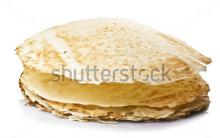We offer you natural and affordable ingredients that will make your tea not only incredibly aromatic, but also beneficial for your body and well-being. So what should you add to your tea?
Carnation
This drink has an interesting spicy taste and will brighten up any monotonous evening. This spice contains not only very useful essential oil, vitamins A, B1, B2, PP, C, organic acids, tannins, glycosides, calcium, sodium, magnesium, phosphorus, caryophyllene and other useful substances.
Cloves are a hot spice that irritates the stomach lining. Therefore, it is not recommended to use it for people who have a history of ulcerative diseases. This spice is contraindicated for pregnant and lactating mothers, hypotensive patients, with gastritis with high acidity, individual intolerance.
The clove bud retains more flavor than the stem (it has a higher content of essential oil, so the stem tastes bitter). Remember that the aroma disappears quickly, but the taste lasts longer.
Recipes and cooking secrets.
This delicious clove and cinnamon tea can be easily made by yourself at home.
First, let's prepare the ingredients:
1-2 pcs. carnations,
half a stick of cinnamon
1-2 tablespoons of black or green tea leaves
some orange or grapefruit juice,
a small slice of lemon,
ginger,
sugar to taste and half a liter of water.
We mix spices - cloves, cinnamon and ginger. Fill everything with water, boil. Pour black tea with this broth and leave for 3-5 minutes. Add sugar, lemon, orange juice.
For the next recipe we need
carnation
ginger
cardamom
black tea brewing
We choose the number of components to our liking. We clean the ginger, cut into small pieces. Put all the spices and black tea in the teapot. Fill with water (85 - 90 ° C). We close the lid, wrap the kettle with a towel. We insist 30 minutes. You need to drink this drink warm.

In oriental medicine, thyme is known as the herb thyme.
- It is an excellent antihelminthic agent, characterized by disinfecting, antibacterial effects.
- The drink is considered to be a powerful pain reliever. A mug of tea in a matter of minutes relieves headaches, discomfort during menstruation in women.
- It is recommended to brew tea when coughing. It perfectly removes phlegm, softens the throat, and prevents the further development of the disease.
- The drink helps to strengthen the immune system due to its rich composition. It also normalizes the digestive processes, relieves bloating, and normalizes intestinal motility.
- Thyme tea is known for its beneficial effects on the human nervous system. It has been proven that the drink is excellent in relieving stress and will help you gain peace of mind.
- For men, the drink is also useful. It improves potency. Women are advised to drink this tea with weak lactation (as prescribed by a doctor).
- Tea with thyme, the benefits of which are invaluable, are also useful for cosmetic purposes. Regularly including a drink in your diet can get rid of acne and acne. Moreover, the presence of essential oils and vitamins in its composition prevents the early fading of the dermis, strengthens hair and nails.
The healthiest thyme tea recipes
Tea with thyme will not harm the body if you learn how to cook it correctly. There are several recipes. By selecting new ingredients each time (depending on your condition), you can get the specific properties of the drink.
An invigorating morning drink
An ideal drink for the morning is black tea with thyme. It is fragrant, incredibly tasty. A cup of tea will invigorate, give a wonderful mood for the rest of the day.
Add 1 teaspoon of thyme and half a spoonful of black tea to the teapot. Everything is filled with boiling water. The drink should be infused for 7-10 minutes.
Then a slice of orange (lemon), 1 tablespoon of honey are added there. Additional ingredients will improve the taste of the drink, make it richer
Black tea with thyme not only invigorates, it will normalize the digestive processes, cope with colds.
It is not recommended to drink it before bed, so as not to overcome insomnia. It's no secret that green tea is incredibly healthy. If you add thyme to the drink, it will turn out to be even more valuable in its properties. Such tea is prepared in the same proportion as with black tea.
Benefits of the drink:
blood circulation is normalized;
allows you to reduce blood cholesterol levels;
relieves headache;
eases the well-being of a person with a cold;
characterized by excellent antioxidant properties;
strengthens the immune system.
During the day, it is allowed to drink no more than 3-4 cups of this tea. The last one - 2 hours before going to bed. The drink is characterized by a strong diuretic effect.

In eastern countries, ginger is called a universal medicine. Ginger has no equal among other spices, not only for its medicinal properties, but also for its taste.
The tea drink turns out to be very colorful, rich and aromatic. Ancient oriental knowledge says that ginger drinks warm the blood. This means that ginger helps to accelerate metabolism, which leads to the improvement of all body systems and the elimination of toxins. These processes directly affect the maintenance of the body in a normal state, and also effectively help with weight loss.
Due to its beneficial properties, ginger tea is used in folk medicine for the following purposes:
- For weight loss (girls pricked up their ears);
- relieving muscle fatigue; against heartburn;
- to normalize liver function, improve bile flow; - strengthening the immune system;
- cupping - nausea, vomiting, diarrhea;
- improving blood circulation;
- accelerating metabolism;
- as a tonic;
- elimination of unpleasant odor from the oral cavity;
- fight against flatulence and fermentation in the intestines;
- solving female and male problems in the sexual sphere;
- and much more.
Give up such aromatic tea if:
- You are prone to allergies;
- you have a fever;
- suffer from cardiovascular diseases;
- with problems with blood clotting;
- with exacerbation of chronic diseases of the digestive system.
The easiest ginger tea recipei am - brew 2-3 cm of ginger root (pre-cut into slices) in the morning in a 2 liter thermos and drink it during the day about half a glass before or after meals. You can add honey, lemon or any syrup to your taste to this infusion.
The subtlety of the second recipe for making ginger tea is to achieve a high concentration of ginger in the tea. To do this, pour the ginger cut into thin slices with water and simmer for 15 minutes. After the tea has cooled to 37 degrees, honey and lemon juice are added. They drink as usual.

The aroma of cinnamon adds zest to any dish and drink, making it especially pleasant and tasty. Tea with the addition of cinnamon is no exception. It gives the drink an amazing taste and also makes it very healthy. The combination of the beneficial substances of tea and cinnamon creates an exceptional drink.
If you inhale its aroma, then you can noticeably lose weight. The content of essential oil in it, blocks the feeling of hunger. This reduces weight. Cinnamon is not recommended for people suffering from hypotension. At high body temperature, drinking cinnamon tea or adding spice to food is also contraindicated.
Cinnamon is good for all people:
- Acts as protection against viral diseases;
- strengthens the heart and blood vessels;
- reduces weight;
- normalizes sugar levels in diabetics;
- relieves gastrointestinal problems;
- improves brain function;
- cheers up;
- strengthens the hairline;
- good anti-hangover;
- will increase potency;
- improve attention, memory, vision;
- reduce fatigue;
- improve immunity.
There are many recipes for cinnamon tea. To make the drink aromatic and healthy, after brewing it must be filtered. Green is placed in water at 60 degrees, and black is poured with boiling liquid.
If you need to lose weight, leaf green tea is used as the basis of tea. 1 tablespoon of tea and 1 teaspoon of cinnamon are thrown into 500 ml of water. No sweeteners are added. Stir, after 5 minutes the drink is ready. For a change, use lemon, ginger, honey.
When using black tea, add 2 teaspoons of tea powder, 1 teaspoon of ginger, the same amount of mint, half a cinnamon stick and a clove to hot water (0.5 l). You need to insist such a drink for 7 minutes, then filter, add the juice of one lemon and 300 ml of orange juice. This drink is consumed cold.

Natural mint tea is a drink with a long history that nourishes, refreshes, heals, and has a fragrant aroma. The cooling effect of mint tea is especially true on hot summer days. Of course, a refreshing drink is appreciated not only for its excellent taste, but also for its amazing healing effect.
Due to its healing properties, mint tea is used as:
- a sedative and pain reliever for nervous exhaustion, insomnia, migraines, hypertension;
- antiseptic for runny nose, cough, sore throat (helps relieve pain, clears mucus);
- antispasmodic and anti-inflammatory agent for stomach cramps, bowel disorders, nausea;
- choleretic drug to improve the outflow of bile, reduce the acidity of the stomach;
- helps to fight early toxicosis;
- eliminates constipation, dizziness;
- tones the muscles of the uterus;
- relieves swelling, heartburn symptoms.
Mint tea with cranberries and honey
Mint leaves are boiled in boiling water for 10-15 minutes. Cranberries are ground with honey, laid out on the bottom of glasses, poured with mint broth, infused for 5 minutes under a closed lid. In summer, you can serve a cold drink with ice cubes.
Spiced tea with cinnamon and lime
At the bottom of the glass are laid out: a leaf of fresh mint, a little black tea, a pinch of cinnamon. The ingredients are poured with boiling water, covered with a lid, infused for several minutes, before use, the glass is decorated with a slice of lime.
Mint tea with ginger and honey
3 tbsp. tablespoons of grated ginger and mint are brewed in a liter of hot water, add 4 tbsp. spoons of honey. Can be mixed with various types of regular black tea.
Many, many other recipes)
The composition of mint leaves contains active substances that can have a negative effect on the human body. therefore it is undesirable to take mint tea
- Individuals with individual intolerance,
- allergy sufferers;
- pregnant women, women during lactation;
- children under 5 years old;
- hypotensive patients with low blood pressure;
- men with problems in the intimate sphere;
- with varicose veins.

The fruits of the plant, which look like small stars, contain a huge amount of nutrients. Among them are manganese, copper, zinc, magnesium, phosphorus, iron, vitamins A, B1, B2, B3, B5, B6, B9, C, as well as tannin and essential oils.
Tea made from star anise helps with the following diseases:
- Colds, flu, SARS, bronchitis and other diseases of the upper respiratory tract. The drink facilitates the course of the disease, promotes the discharge of phlegm and cleanses the bronchi.
Intestinal colic, flatulence, abdominal pain. The fruits of the plant have the ability to normalize bowel function, relieve indigestion and soothe pain. - "Women's diseases" - painful and irregular menstruation, irregularities in the cycle due to the use of potent drugs. - Weakened immunity.
- Regular intake of the drink will improve the body's resistance to seasonal diseases, will have a general strengthening effect.
What to add to your tea for maximum benefits
We offer you natural and affordable ingredients that will make your tea not only incredibly aromatic, but also beneficial for your body and well-being.
So what should you add to your tea?
Carnation  Eases headaches and freshens breath. Clove tea will help calm your nerves and put your thoughts in order after a hard day.
Eases headaches and freshens breath. Clove tea will help calm your nerves and put your thoughts in order after a hard day.
Clove is very useful, it helps with colds, improves blood circulation, helps relieve toothache, and has a good effect on the stomach and liver.
THYME
Black tea with thyme relieves fatigue, soothes and gives strength. It is also used as a remedy for colds and coughs, since thyme has analgesic and anti-inflammatory effects. Tea with thyme strengthens the body, improves well-being, warms in winter and refreshes in summer. Also, thyme will help, after a hearty feast, to establish digestion and remove unpleasant sensations in the stomach.
Nevertheless, tea with thyme also has contraindications; it is not advisable to drink it during pregnancy, as well as for people suffering from diseases of the thyroid gland, stomach, liver and kidneys.
GINGER
Ginger tea is useful for its effect on the cardiovascular system of the body, it thins the blood, strengthens the heart muscle and blood vessels. It is also very beneficial for digestion, eliminates excess gases, removes toxins, cleanses the liver, stimulates brain activity and is able to enhance potency. Ginger tea contains a large amount of vitamin C, which is why it is popularly used to treat colds and flu. Taking tea with ginger is also recommended for the prevention of colds.
Also irreplaceable is ginger tea for weight loss, since the essential oils contained in ginger accelerate metabolic processes in the body.
Regular intake of ginger tea will heal you, protect you from various diseases and give you strength.
CINNAMON
It is known that cinnamon is able to normalize blood sugar levels, it has a warming effect, removes toxins and toxins, lowers bad cholesterol, and also promotes weight loss.
In order to benefit from this wonderful spice, it is enough to consume only half a teaspoon per day. For example, you can make black or green tea and add ground cinnamon to it.
TEA WITH MINT
It will help you fall asleep and wake up with restored strength, as it has the ability to calm the nerves, relieve stress.
Mint tea is a very good helper for colds, makes breathing easier, and is effective for migraines. Menthol has such an effect on the body, extracts of which are made from mint leaves. Tea with mint is also useful for people with cardiovascular diseases, it normalizes blood pressure, promotes normal heart function.
Mint tea is considered female tea and is not recommended for men, as it tends to reduce the level of male hormones in the body. This reduces hair growth in women in unwanted areas. It also helps with women's problems, mint helps relieve pain, regulates the menstrual cycle, and improves the condition during menopause.
Spices such as vanilla, cinnamon, thyme, ginger, cloves have higher antioxidant levels than mushrooms, vegetables, and even fresh berries.
But teas with fruits cannot boast of so many beneficial properties. Even lemon, which is known to contain large amounts of vitamin C, loses it when it gets into boiling water.
Have a nice tea!
Tea is an excellent drink with medicinal properties. This miraculous potion not only tones up, but also invigorates, has a wonderful aroma and can both warm in winter and quench thirst in summer. Tea, of course, is good in itself, but its properties can be improved with the help of certain additives. 1. Clove Relieves headaches and freshens breath. Clove tea will help after a hard day ...
Tea is an excellent drink with medicinal properties. This miraculous potion not only tones up, but also invigorates, has a wonderful aroma and is able to both warm in winter and quench thirst in summer. Tea, of course, is good in itself, but its properties can be improved with the help of certain additives.
1. Carnation
Eases headaches and freshens breath. Clove tea will help calm your nerves and put your thoughts in order after a hard day.
2. Thyme
It will help, after a hearty feast, to improve digestion and remove unpleasant sensations in the stomach.
3. Ginger
Stimulates the defenses of the immune system and warms up after a long walk in the cold. Drink tea with ginger if you suddenly wet your feet, get frozen or after a cold, acute respiratory viral infection, flu.
4. Cinnamon
It normalizes blood sugar, so it is good to drink sweets and bread and cheese with tea with cinnamon.
5. Tea with mint
It will help you fall asleep and wake up with restored strength, as it has the ability to calm the nerves, relieve stress. Tea with mint is also useful for people with cardiovascular diseases, it normalizes blood pressure, promotes normal heart function.
6. These spices: vanilla, cinnamon, thyme, ginger, cloves, have higher antioxidant levels than mushrooms, vegetables and even fresh berries.
7. Tea with milk.
It has a diuretic effect and is great for fasting days. It is not recommended to use it for a long time to avoid dehydration. In addition, this drink contains more vitamins and minerals than ordinary tea or plain milk, and is good for the heart, kidneys and nervous system.
8. Tea with anise.
Anise tea will help with dizziness, relieve headaches, and with inflammation of the upper respiratory tract or an asthma attack, relieve the condition and promote recovery.
But teas with fruits cannot boast of so many beneficial properties. Even lemon, which is known to contain large amounts of vitamin C, loses it when it gets into boiling water.
The variety of ways to drink tea is amazing.
The main property of tea is that if you add a few useful details to it, it can become a real elixir against all kinds of diseases! So what needs to be added to tea to turn it into a health drink?
Lemon
Almost a quarter of all tea lovers drink tea with lemon (about 22%). They say that drinking tea with lemon was invented relatively recently, at the end of the 19th century, and the idea did not appear anywhere, but in Russia. It must be said that history has not preserved the name of the person who decided to put a circle of lemon in a cup of tea, but, I think, this person could receive a huge amount of thanks.
First, it's delicious! And even if the tea is not of the highest quality, lemon saves the situation - this is a fact.
Secondly, combined with lemon tea better quenches thirst and restores strength... The Russian idea of \u200b\u200blemon tea has taken root in many countries - today they drink tea with lemon in Turkey, Iran, Egypt, and India.
The benefits of lemon tea
Tea with lemon is tasty, healthy, but ... But the lemon should not get into a very hot drink, because the high temperature will completely destroy vitamin C and other vitamins that are in lemon. It is clear that both the smell and the pleasant sourness will remain, but there is no need to expect any special benefits. Therefore, it is better to put lemon in tea then, when the drink has cooled slightly.
Anise fruit
Anise or star anise is an insanely useful tea supplement that will help the body cope with inflammatory diseases of the lungs, throat, intestines and kidneys... And also tea with the addition of anise has a very pleasant taste.
Dried blueberries or blackberries
Blueberry or blackberry tea has cleansing property. This drink will help prevent chronic inflammation and diseases of the gastrointestinal tract.
Jasmine
Jasmine flower tea will save you if you are feeling fatigued, or if you have chronic fatigue syndrome... Such tea will raise low blood pressure, relieve inflammation of the gastric mucosa.
Ginger
Ginger root tea will help you cheer up and keep warm in cold weather. Making this drink is easy: simple grate the ginger root and pour boiling water over it.
Calendula
Marigold flowers have bactericidal action, help relieve sore throat with sore throat or colds.
Lavender tea
Lavender flower tea will help with neurosis, stress and depression... This tea is the best sedative.
Mint
Everyone knows that mint tea is very good soothes... The scent of mint will help you relax in the evening, and also mint tea soothes coughs, reduces fever and makes you feel better.
Dried citrus peels
After eating orange, tangerine, or any citrus, leave the crusts and dry them. Believe me, even ordinary black tea with dried citrus peels will become a very tasty drink, in which a lot of vitamins will appear!
Linden
Another classic of tea additives is linden. Linden tea is an excellent remedy for colds (both diaphoretic and antipyretic)... Linden is famous for its anti-inflammatory and bactericidal properties, linden is soothing, linden is just nice. Interestingly, linden tea sweetish without any sugar - pollen of dried flowers gives a sweetish hue.
the Rose
It is added to tea and rose, both leaves and flowers. All types of roses contain vitamin P, which is very important for of cardio-vascular system... Strengthen blood vessels, reduce allergic reactions, increase endurance - tea with the addition of roses (hibiscus, hibiscus) can do everything.
Spice
Opinions also differ regarding tea with spices. Cardamom, cloves, cinnamon, dry ginger, fennel, black pepper; nutmeg or saffron, allspice or anise - you can put anything in your tea. But all spices have a rather intense aroma and can simply "kill" the aroma of tea. In addition, you cannot abuse tea with spices: this is precisely the case when benefits and harms differ only in quantity.
Chamomile
A classic tea additive is chamomile, which has been used to treat diseases of the gastrointestinal tract, mucous membranes and relieve spasms for hundreds of years.
Chamomile in tea help the body cleanse - a hot drink with chamomile enhances perspiration, respectively, the body is cleansed of toxins. Chamomile helps normalize bowel function, which has a very positive effect on condition of hair and skin.
But doctors warn against excessive use such tea - the sedative (sedative, inhibitory) properties of such a drink can negatively affect the ability to concentrate, concentrate and, as a result, can negatively affect performance.
Such drinks came into use only a few decades ago, but even during this short time, many recipes have appeared for creating special bouquets, including those or other natural additives. The simplest additions (according to the mood) are used by many of us. For example, we like to drink tea with lemon (although some people do not like that the color of the tea changes noticeably - there is no initial bright saturation). In summer, at the dacha, you can often find fans to add black currant leaves or berries to tea - the aroma is amazing! No wonder the housewives add them to pickles.
So, what is added to regular tea today?using modern deep knowledge of its natural properties, and the properties of natural aromatic and medicinal plants?
There are as many as five groups here:
Group 1.
This most impressive group also has three constituent parts. Firstly, inclusion of dried, chopped fruit (apple, plum, peach, apricot, tangerine, orange, cherry, etc.). Secondly, use berries (strawberries, strawberries, rose hips, blueberries, blackberries, raspberries, black currants). AND, third, use as additives seed cardamom, anise, cloves, as well as spices (cinnamon, ginger, vanilla, rum)
Group 2.
The special taste and aroma of ordinary tea is given flower petals... The most common ones are rose, calendula, peony, mallow, jasmine, lavender, chamomile, pansies, cornflower.
Group 3.
Used and leaves: strawberries, currants, raspberries, blackberries.
Group 4.
Used as an additive heather and mint herbs... The rest are usually best used neat.
Group 5.
And, finally, they found their place among additives in black or green tea vegetable oils: mint, lemon, orange, peach, bergamot and all kinds of tropical fruits.
The use of all of the above additives is by no means a tribute to fashion, but again a means improve our well-being... Here is a list of diseases in which these plants are successfully used in folk medicine and herbal medicine. Lovers of flavored teas have simply adopted the experience of many generations of healers and healers. However, current science, in particular pharmacognosy, has confirmed the validity of their recommendations.
Apricot: anemia, whooping cough, bronchitis, inflammation of the trachea and kidneys, dry cough.
Anise: inflammation of the mucous membrane of the respiratory tract, cough, inflammation of the lungs, small and large intestines, kidneys and bladder, bloating, can increase lactation in nursing mothers.
Knapweed: inflammation of the kidneys and bladder, spasm of internal organs, impaired twilight vision, acute respiratory infections.
Heather: rheumatism, tuberculosis, atherosclerosis, dry cough, inflammation of the liver, spleen, bladder and gastric mucosa with high acidity.
Hibiscus (Sudanese rose with large bright red flowers with a dark purple corolla outside and dark purple inside): antibacterial, choleretic, diuretic, diaphoretic, antiseptic; helps to improve the elasticity of blood vessels, prevents an increase in cholesterol content, and normalizes blood pressure.
Blackberry: gastric and intestinal bleeding, food poisoning, diseases of the upper respiratory tract.
Jasmine: treatment of scurvy and rheumatism; tonic, an agent that increases the secretion of hydrochloric acid in the stomach; it is used for asthenia, general weakness and loss of strength, low blood pressure, with gastritis with decreased secretion, with poor appetite.
Strawberries: inflammatory and ulcerative processes in the gastrointestinal tract, cholelithiasis and urolithiasis, colitis, impaired salt metabolism, anemia, bronchial asthma.
Ginger: lack of appetite, vomiting, bronchial asthma.
Calendula: neuroses, hypertension, angina pectoris, gastric ulcer and duodenal ulcer, inflammation of the intestines, liver and gall bladder diseases; has an antiseptic, anti-inflammatory effect for tonsillitis and inflammation of the mucous membrane; used for bruises, cuts, burns, furunculosis, periodontal disease and bleeding gums.
Strawberry: prevention of liver and kidney diseases, as a diuretic; loss of strength, regulation of metabolic processes. ...
Lavender: sedative, antispasmodic agent for neuroses and insomnia.
Lemon: fever, metabolic disorders, gastritis with low acidity, gout, urolithiasis, tonsillitis, fungal skin diseases, itching.
Raspberry: anemia, acne, inflammation of the stomach and intestines, mild diabetes, neurasthenia and neurosis.
Peppermint: neuroses, insomnia, angina pectoris, inflammation of the gallbladder, upper respiratory tract, gastritis with high acidity, bad breath, toothache. Contraindicated in severe arterial hypotension!
Peony: low acidity of gastric juice, neuroses, colds and gastrointestinal diseases, inflammation of the upper respiratory tract, metabolic disorders.
Sunflower: fever, poor appetite, cholelithiasis, headache, the initial stage of hypertension, metabolic disorders, vitamin deficiency.
Black currant: inflammation of the kidneys, urinary tract, upper respiratory tract, headache, the initial stage of hypertension, metabolic disorders, vitamin deficiency.
Plum: hypertension, anemia, kidney disease.
Violet tricolor (pansies): Acute respiratory infections, inflammation of the oral cavity, urolithiasis, toothache, skin diseases. Contraindicated in hepatitis!
Blueberry: decreased vision, gastritis with low acidity.
Rosehip: hypertension, atherosclerosis, peptic ulcer of the stomach and duodenum, vitamin C deficiency, urolithiasis, inflammation of the bladder, general tonic.
An Apple: indigestion, obesity, gout, atherosclerosis, chronic inflammation of the colon, anemia, inflammatory diseases of the skin of the face.
In addition, today you can find the so-called exotic additives as part of black and green tea. As a rule, they serve as flavoring agents, used as a dietary, tonic drink. And although our knowledge of tropical plants and fruits has expanded significantly in recent years, we will nevertheless give a brief information about some of the rather common representatives of the overseas flora.
Bergamot - citrus, essential oil crop growing exclusively in Italy... The fruits are golden yellow in color and pear-shaped. From this plant, bergamot oil is obtained, which is considered the best among citrus fruits.
Guava - pear-shaped or spherical fruit-berry, rich in vitamins. It has sweet and sour taste.
Jackfruit - a large tropical fruit with a thick, rough crust. The main wealth is protein, which allows the population of a number of countries to use it on a par with bread.
Cardamom - a nut with a whitish-yellow shell, belongs to the ginger family. Inside the fruit are seeds with a pleasant lemon aroma.
Lime - a juicy green fruit that looks like a lemon (there are sweet and sour varieties). It has a pleasant smell, which is why it is used as an additive to tea.
Click " Like»And get the best posts on Facebook!
In winter, warming tea is quite healthy and tasty. Green and black drinks are considered to be a real storehouse of nutrients. Thanks to him, you can warm up, calm down and cheer up. It is also a natural antioxidant. You should be aware of what to add to your tea to be healthier. Thanks to some additives, you can significantly strengthen the immune system.
There are berries, thanks to which the human body can become healthier, and many diseases will simply recede. These include:


- Sea buckthorn is the record holder for the content of useful elements... These berries contain acids of organic origin, manganese and iron, as well as vitamins of groups PP and C, K, E and B. Sea buckthorn is used for diseases of the intestines and gastrointestinal tract, to increase the protective properties of the body and strengthen the immune system.
- Dried blueberries can be added to tea... If you freeze them, then they will give all the healing substances to the drink. Blueberries strengthen the immune system and improve vision. It helps prevent diseases of the gastrointestinal tract and has a cleansing effect. It is recommended to use the berry for diseases associated with the cardiovascular system and diabetes.
- ... It contains dozens of different vitamins and microelements, thanks to which the normal life of the body will occur. Rosehip is recommended to be brewed to prevent viral and infectious ailments, to strengthen the immune system.
This berry also has a positive effect on the digestive tract. Rosehip is used to treat diseases of the intestines, as well as kidney and liver, pathways for urine excretion.
Herbs and flowers
There are also herbal and floral supplements that help strengthen the body and are used for prevention. These include:
Tea that works better than an hour in the gym


- Jasmine flowers are added to tea in order to fully enjoy the unobtrusive aroma and soft taste of the drink. The plant has a calming and anti-inflammatory effect, relieves abdominal pain and migraines. It goes well with green tea.
- A rose for preparing a fragrant drink can be purchased at a specialized outlet. Tea based on this flower is an excellent antibacterial and antiviral agent. The flower buds will enhance the taste and exquisite aroma of any drink.
- Lavender tea is also considered to be an excellent remedy that has antispasmodic as well as anti-inflammatory properties. This flower will increase the usefulness of any drink at times. It is used for the prevention and treatment of ailments associated with the respiratory tract, gastrointestinal tract, to eliminate stress conditions and neuroses. This flower has an unrivaled aroma and taste.
- The healing effect of calendula has been known to people since ancient times. The flowers of this plant are actively used in both folk and modern medicine. Thanks to them, you can cure diseases of the digestive and cardiovascular systems. Has calendula and antibacterial properties. It is used to relieve stress and calm the nervous system.
- Peppermint essential oil contains a large amount of menthol. It is he who has a tonic and tonic, as well as antibacterial and antiseptic effects on the body. It soothes pain sensations well, eliminates stress and fatigue.
- Thyme gives the drink an excellent aroma and taste. In addition, it is very useful for the body. The healing effect on the body is due to the high content of essential oil in the composition. It is good to drink a thyme-based drink for flu and colds, bronchitis and other ailments of the respiratory system. The plant perfectly eliminates depression and blues.
Green tea with milk
Additional additives
But not only berries, flowers and some plants have a healing effect. There are some more products that can help eliminate various ailments. These include:


- Lemon contains a lot of vitamin C. This citrus is excellent for the treatment of infectious and colds, as well as their prevention. To maximize the effect, it is recommended not to throw away the lemon slice after drinking tea, but to eat it.
- Dried citrus peels are rich in various vitamins. When added to tea, all nutrients will be transferred to the body.
- Anise has a lot of benefits for the human body. Tea with this supplement will strengthen the immune system. In addition, a drink based on this spice will help with diseases of the urinary tract and kidney ailments, will have a beneficial effect on the activity of the intestines, and also remove stones from the kidneys. It is very useful to use tea with anise for colds and infectious diseases of the respiratory tract.
- Ginger root is a favorite among tea additives. Drink it regularly. Ginger has anti-inflammatory properties. Experts recommend drinking such a drink in order to increase the protective function of the body and strengthen the immune system. In addition, ginger root helps with back pain and headaches, eliminates stress, and has a beneficial effect on the nervous, digestive, and cardiovascular systems.
- Cinnamon can also be added to tea. It is worth giving preference to dark varieties. This spice will help relieve fatigue and nervous tension, as well as improve your mood. Inside the body, it improves the transport of useful elements.
Thanks to such additives to tea, it is not scary to go outside in winter, being afraid of getting sick.











How to get from Madrid (Barajas) airport to the city center?
How to get from Barcelona airport Plan of Barcelona airport terminal 1
Buses in Sicily Ski map with bus routes
Rent a car in spain
Main characteristics of batteries